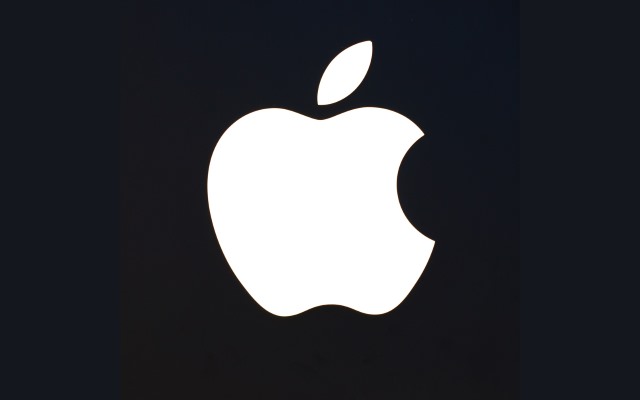
GDPR predictions for 2017
The European Union’s General Data Protection Regulation (GDPR) is due to come into force on May 25, 2018. This means that IT teams have more than a year to audit their IT systems, check existing customer records and data, and ensure that these systems respect the new set of rules that will be in place.
However, the gap between intentions and actions can be a big one. So what do I predict will happen around GDPR in 2017?

Google, Facebook, Microsoft, and Twitter join forces to fight terrorism
Terrorism is a daily threat to our freedoms. It is unfortunate, as we used to be able to go throughout our days without the thought of violence. Now, it dominates the news. Heck, when I am in Penn Station in NYC, I see soldiers with machine guns. Sigh.
Unfortunately, terrorists thrive on the internet too. Using social media and video platforms like YouTube, these evil-doers look to recruit new members while sharing propaganda. Today, Google announces that it is partnering with some major players -- Facebook, Microsoft, and Twitter -- to fight online terrorism with a special database. The partners will look to protect user privacy in the process.

Google's Trusted Contacts app lets you share your location with friends and family
Google is making it easy to share your location with your friends and family, introducing a new Android app, called Trusted Contacts, that lets select contacts know exactly where you are at any given time.
Google has designed Trusted Contacts so that if you do not manually accept a request within five minutes it will automatically share your location with that contact. This should come in handy when you are unable to pick up your smartphone or cannot hear it ring.

Apple letter all but confirms plans for self-driving cars and commitment to privacy
We've known (or at least believed) for some time that Apple has been working on some form of automated vehicle, but the company has remained tight-lipped about what it is up to. Now, however, a letter to the National Highway Traffic Safety Administration (NHTSA) gives the strongest official hint that Apple is working on something.
The letter -- written by Apple's Director of Product Integrity, Steve Kenner, back in November -- has just come to light, in it Apple praises NHTSA's policies on automated vehicles, and stresses the importance of machine learning, data sharing, and user privacy in ensuring the development and safety of such technologies.

Facebook is monitoring Roku and Apple TV streams to deliver targeted advertising
Internet users are accustomed to the idea of targeted advertising. Both Google and Facebook take into account the things you look for online, the things you look at, the people you are connected to, and so on, and use this information to pelt you with ads they think you will respond to.
Having been forced to stop using data gathered from WhatsApp to deliver targeted ads to social network users, you might think that Facebook would consider toning down its ad personalization. But you would be wrong. For the last few weeks, Facebook has been testing the delivery of targeted ads to Roku and Apple TV based on what people are watching.

The UK government's latest deluded idea: 'banning' underage sexting on social media
When the UK government is not busy looking for ways to invade internet users' privacy, it's looking for ways to restrict what they are able to do online -- particularly when it comes to things of a sexual nature.
The health secretary Jeremy Hunt has made calls for technology companies and social media to do more to tackle the problems of cyberbullying, online intimidation and -- rather specifically -- under-18-year-olds texting sexually explicit images. Of course, he doesn't have the slightest idea about how to go about tackling these problems, but he has expressed his concern so that, in conjunction with passing this buck to tech companies, should be enough, right?

The Internet Archive to set up Canadian mirror to stay out of Trump's reach
Many people are concerned about just what Donald Trump might do when he becomes president in 2017, and some of the biggest concerns lie in the fields of technology and the internet. Worried about what the arrival of President Trump could mean, the Internet Archive is collecting donations to fund a Canadian mirror of the site.
The Internet Archive of Canada will lie outside of the jurisdiction of the US government and is being built based on the idea that "lots of copies keep stuff safe". Currently based in San Francisco, a blog post by the Internet Archive makes reference to fears about greater online restrictions that could be put in place by the US.

The Snooper's Charter is now law, giving the UK some of the most extensive, invasive and draconian web surveillance powers in the world
The Investigatory Powers Act 2016, the Snooper's Charter, legalized spying: call it what you will, the UK now officially has some of the most extreme internet surveillance powers in the world. The Investigatory Powers Bill was today given royal assent, meaning it has now passed into law.
Unsurprisingly, there have been huge protests from privacy groups, and an online petition against the new powers has already gained more than 136,000 signatures. The Investigatory Powers Act 2016 not only requires ISPs to store records of their customers' browsing history, but also make this data available to dozens of government agencies, and even permits state hacking of phones and computers.

Cold War 2.0: Russia is borrowing the Great Firewall of China to implement greater state censorship and control
The Great Firewall of China is a famous tool of censorship and state control of the internet -- and Russia wants to throw up its own version of the web filtering system. Russia already operates the so-called 'red web' which is used to not only monitor what Russian citizens are up to online, but also implementing blocks and filters such as the recent ban on LinkedIn.
But now President Putin wants to step things up a notch. Russia and China have become close allies in recent years, particularly in the field of state control of the internet, and there are plans to roll out even greater controls over what web users are able to do and access online, ostensibly from fears of an uprising against the government.

Deseat.me helps you delete yourself from the internet with a few clicks
Everyone has a digital footprint these days, and it can be terrifying to think about the amount of personal information stored online in various accounts. You may have resolved to clean up your act and close a few of your accounts, and this is where Deseat.me can help.
The site takes advantage of the fact that many of your online accounts are linked together by a common thread -- Google. By signing into the site with your Google credentials, Deseat.me will find all of your linked accounts and give you the option of wiping them out in one fell swoop.

Microsoft shares Windows 10 telemetry data with third parties [Updated]
It’s no secret that Windows 10 records all sorts of usage information, some of which it feeds back to Microsoft. To help with the smooth running of Windows 10, and to get an idea of how users interact with the operating system, Microsoft collects telemetry data, which includes information on the device Windows 10 is running on, a list of installed apps, crash dumps, and more.
Telemetry data recorded by Windows 10 is, in a nutshell, just technical information about the device the OS is on, and how Windows and any installed software is performing, but it can occasionally include personal information. If you’re worried about that, the news that Microsoft is sharing telemetry data with third parties might concern you.

Consumers want to know more about how their data is used
The world is ever more reliant on data, but consumers are becoming increasingly concerned about where their personal details are stored and who has access to them.
Professional technology standards body IEEE has carried out a survey of 1,000 UK adults which finds that 81 percent believe the public should be better educated on how their data is being used online.

What you need to know about GDPR
The concept of data protection has been around for many years, since the UK first implemented a Data Protection Act in 1984. The general data protection regulation is a piece of legislation drawn up by the European Commission to unify data protection within the EU and to govern the export of personal data beyond the EU’s boundaries.
GDPR is due to come into force across the EU in May 2018 following a two year transition period. Being a regulation rather than a directive, it doesn’t require enabling laws to be passed by member states.

Obama is not going to pardon Edward Snowden -- and Trump certainly won't
Edward Snowden. A liberal darling, and simultaneously a figure of hate. His surveillance leaks are now legendary, and while the NSA whistle-blower hides away in Russia, there are calls for President Obama to issue a pardon before President Trump becomes a reality.
But Obama is having none of it. In an interview with Germany's Der Spiegel, the out-going president was asked bluntly about pardoning the former NSA contractor. His response was: "I can't pardon somebody who hasn't gone before a court and presented themselves". Obama, of course, could pardon Snowden if he wanted, regardless of whether he has faced trial, but he's not going to say that.

Privacy alert -- Your iPhone is secretly sending your call history to iCloud
iCloud is hardly the finest example of secure cloud storage, as numerous hacked celebrities will attest. So it is perhaps a little concerning to learn that Apple is -- according to a Russian security firm -- storing months of call logs to iCloud without many users being aware of what’s going on.
Elcomsoft, which specializes in cracking software, discovered that if you are an iPhone owner with an active iCloud account, four months' worth of your phone calls have been stored online. Many people will see this as a privacy concern but, worryingly, Apple does not provide a way to disable call log syncing.
